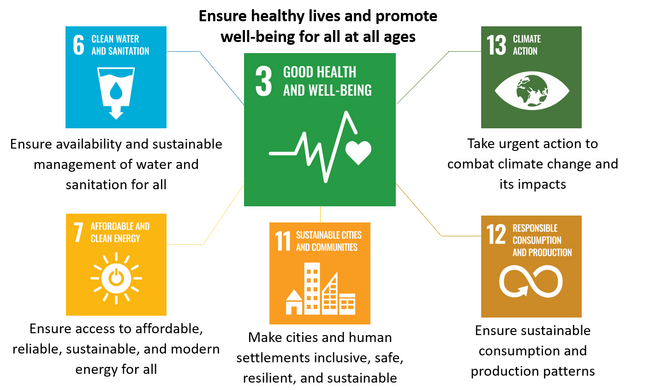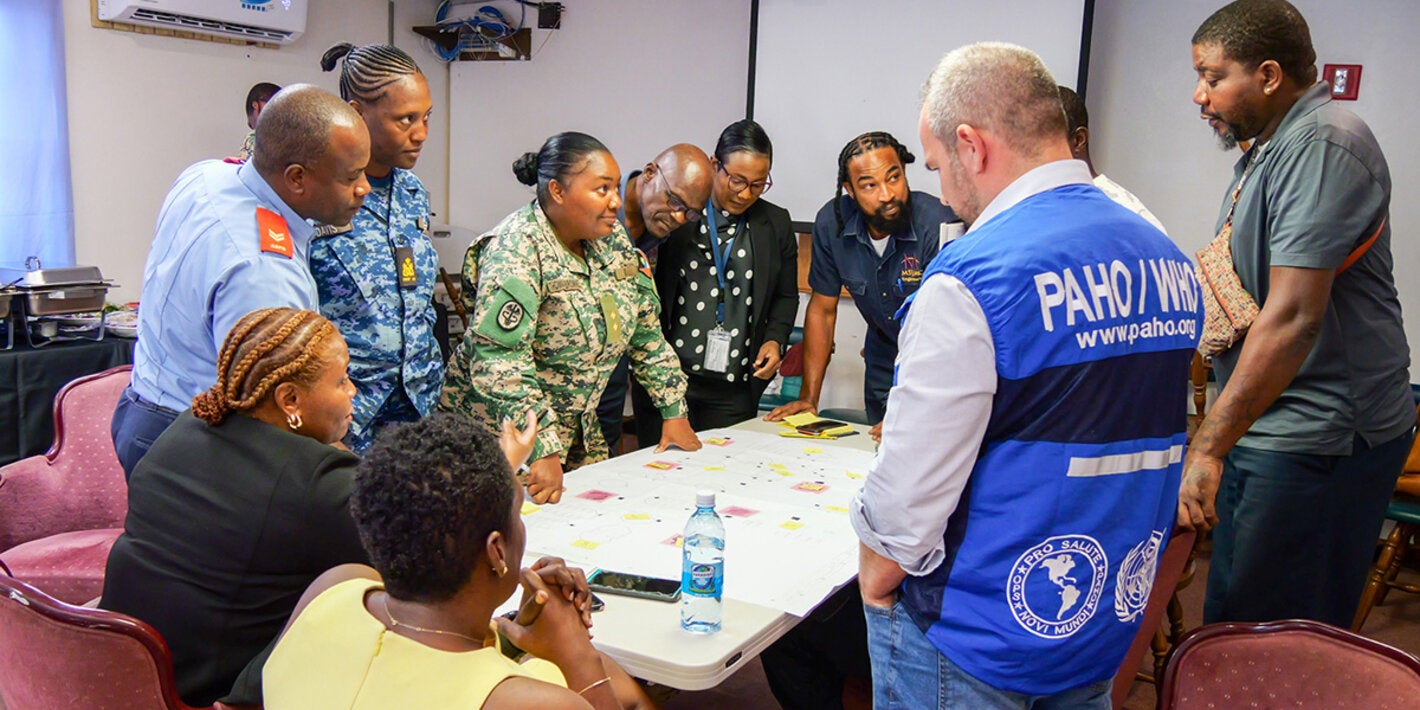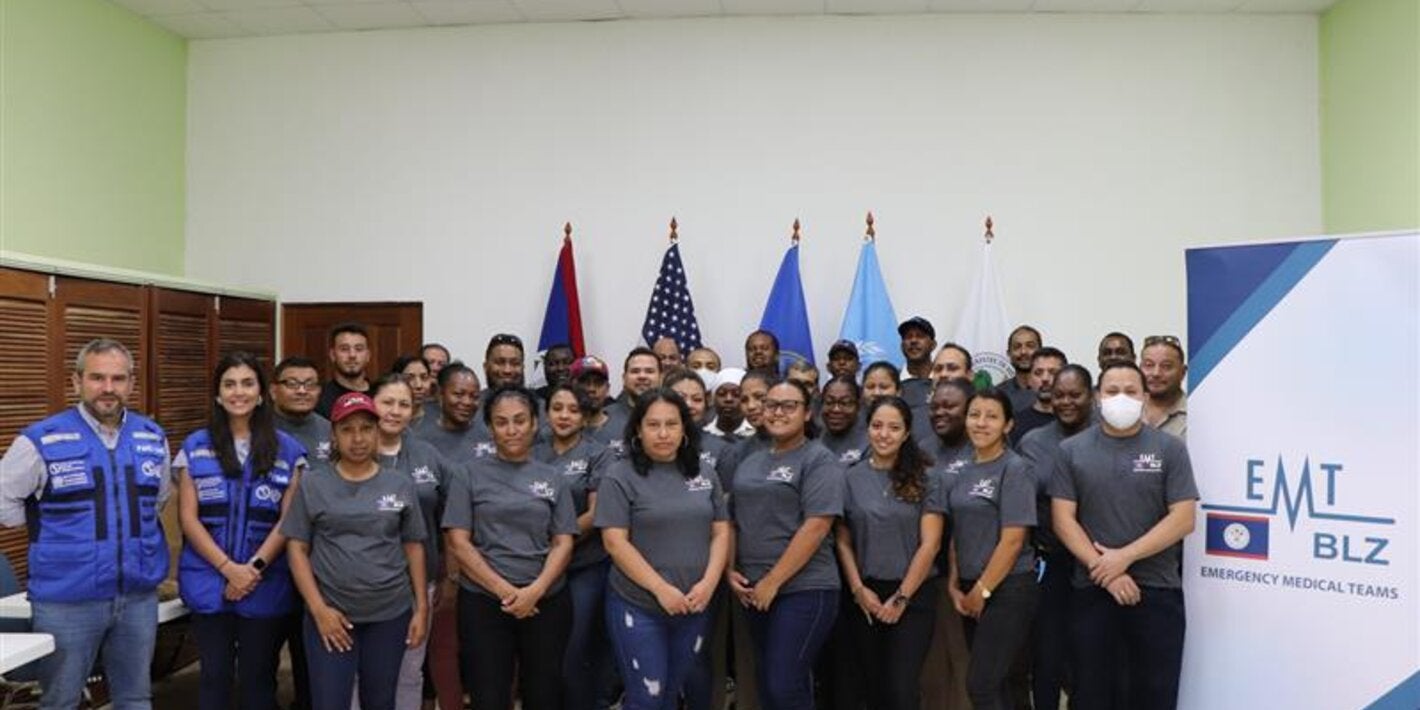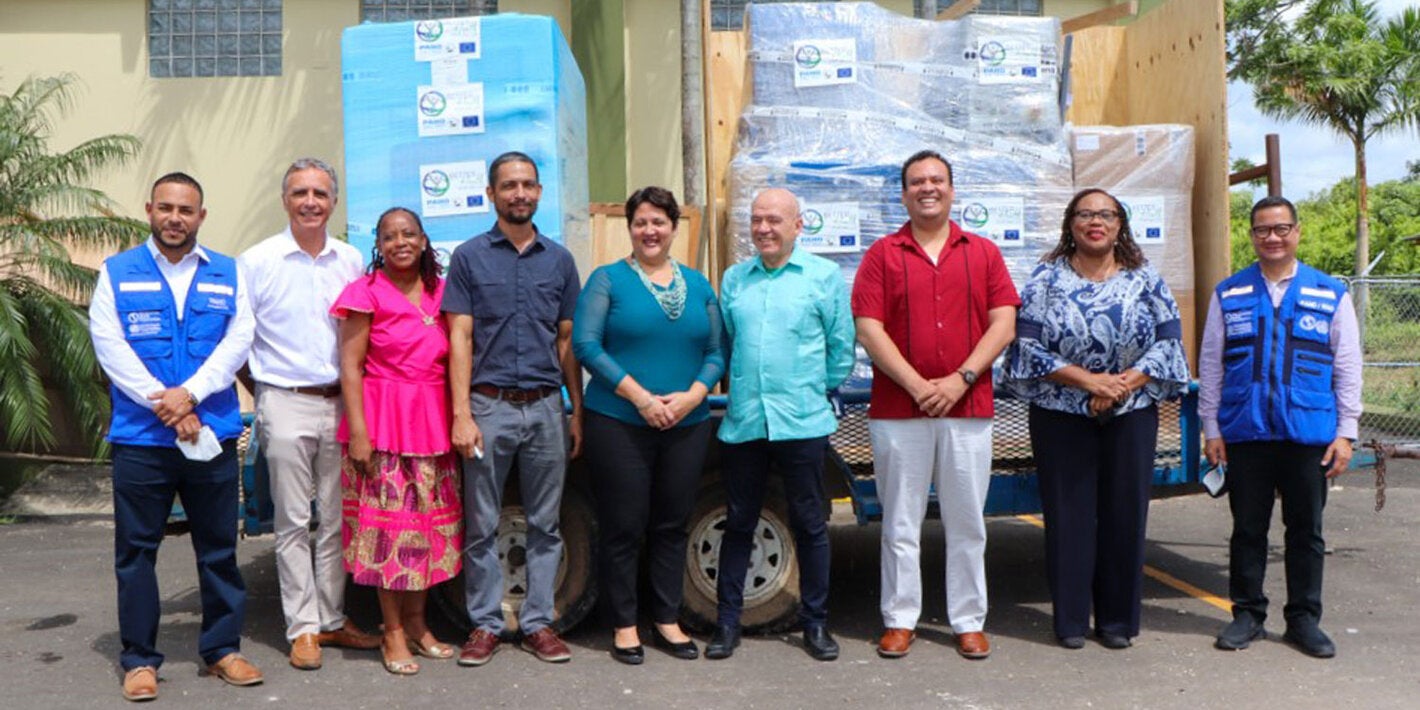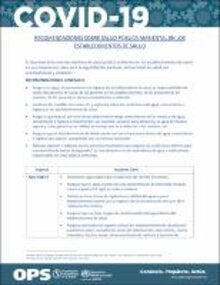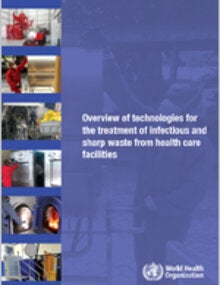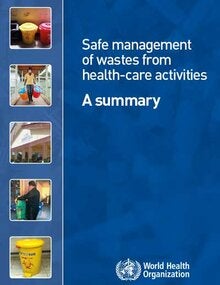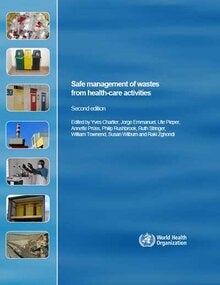Los residuos sólidos son subproductos inevitables de las actividades humanas y abarcan una amplia variedad de materiales según su origen (industrial, doméstico, atención en salud), su composición (orgánicos, inertes o peligrosos) y las etapas de su gestión (minimización, segregación, almacenamiento, transporte, tratamientos y disposición final).
En la salud ambiental, la adecuada gestión de residuos sólidos es esencial para la sostenibilidad de los servicios de agua, saneamiento e higiene (WASH). Cuando los residuos no se controlan pueden convertirse en una fuente de exposición para las comunidades, aumentando el riesgo de adquisición de enfermedades de manera directa por el contacto inmediato, temporal o permanente con los residuos, también pueden causar afectaciones indirectas al alterar el entorno natural y facilitar la dispersión de agentes que transmiten enfermedades.
En América Latina y el Caribe se genera un promedio de 1 Kilogramo de residuos al día por habitante (UNEP, 2021).
Los residuos sólidos representan entre el 3-5% de emisiones directas de gases de efecto invernadero a la atmósfera, considerando los combustibles fósiles para su transporte o inadecuadas prácticas de incineración.
El 7% de la población en América Latina y el Caribe carece de cobertura básica de recolección de residuos (UNEP, 2021).
Existen países en la región donde más del 40% de la disposición final de residuos sólidos se realiza en botaderos a cielo abierto representando un factor de riesgo de enfermedades.
La atención en salud es una de las grandes actividades generadoras de residuos, y entre el 10-25% son residuos peligrosos, que pueden implicar riesgos ambientales y para la salud (english version WHO, 2014).
Datos y estadísticas
Producción promedio per capita en ALC es de 0.9 Kg/día. Esto varía ente las áreas rurales y las urbanas (CEPAL/BM 2018).
1 de cada 3 establecimientos de atención médica no gestiona de manera segura sus desechos, y en la misma proporción se carece de sistemas para segregar los desechos a nivel mundial.
Según información recolectada en 16 países, se han generado aproximadamente 14.854 toneladas (equivalentes a 50.870 metros cúbicos) de residuos adicionales, debido a las campañas.
La gestión de residuos sólidos, tanto urbanos como generados en la atención en salud, exige comprender su comportamiento y abordar de manera integral. Esto implica articular acciones basadas en evidencia y promover la toma de decisiones informada entre los diferentes sectores responsables de proteger la salud humana y el ambiente.
Cuando los residuos no reciben un tratamiento adecuado—en establecimientos de salud o en zonas aledañas— pueden incrementar el riesgo de enfermedades transmisibles como hepatitis, SARS o VIH. También se asocian con afecciones respiratorias y dermatológicas, intoxicaciones y accidentes ocupacionales que impactan directamente los determinantes ambientales de la salud.
Uno de los principales desafíos para su adecuada gestión es la limitada disponibilidad de información confiable. Muchos países aún carecen de datos estandarizados, indicadores comparables y sistemas de monitoreo robustos que permitan evaluar riesgos, orientar intervenciones y fortalecer las políticas públicas en residuos sólidos (english version WHO, 2020; UNEP, 2024).
La OPS desarrolla evidencia sobre el impacto sobre la salud de la población por una gestión inadecuada de residuos sólidos y propone alternativas para su manejo adecuado, poniendo a disposición, guías manuales, recomendaciones y recopilaciones de buenas prácticas, normas, estándares y herramientas que faciliten a los países su adecuada gestión de residuos. Para lograr estos objetivos, se ha enfocado en:
- Presentar evidencia sobre los riesgos que implicar la inadecuada gestión de los residuos sólidos, especialmente aquellos que representan mayores riesgos para la salud como los residuos peligrosos, miro y nano plásticos y RAEE. Un ejemplo de ello es la “Encuesta Regional de Gestión de Residuos en Establecimientos de Salud en América Latina y el Caribe” realizada durante la segunda mitad del 2025.
- Brindar asistencia técnica para la modernización y actualización de los marcos normativos, incluyendo la visión de economía circular y procurando la nivelación a estándares internacionales y regionales.
- Apoyar en el desarrollo y actualización de capacidades en personal relacionado a la gestión de residuos sólidos y su impacto a la salud, trabajando de la mano con los Ministerios de Salud y Medio Ambiente, además de otros actores clave en los países de la región.
- Impulsar la protección de la salud de los trabajadores, enfatizando en la seguridad laboral, especialmente en los del sector salud, desde una perspectiva de derecho.
Impulsar la iniciativa de “eliminación Progresiva y Voluntaria de Vertederos en América Latina y el Caribe".
The availability of sustainable water, sanitation, environmental, chemical, and healthcare waste management (HCWM) services is essential for the quality of care and the prevention and control of infections in healthcare facilities. Significant progress and commitments have been made in this area in recent years. WHO, UNICEF, Member States, and partners are now actively responding to this critical component for health and well-being (WHO, 2019).
The COVID-19 pandemic has led to a significant increase in healthcare waste, testing the capabilities of resource-limited healthcare facilities and exacerbating the environmental impact of solid waste. There is growing recognition that healthcare investments must consider environmental and climate implications, including implications for the acquisition, use, management, and treatment of personal protective equipment (PPE).
Meanwhile, the environment and the climate crisis continue to accelerate, with the impacts of poor waste management and climate change particularly felt in impoverished communities lacking safely managed water and sanitation supplies and experiencing poor-quality healthcare (WHO, 2022).
Since the onset of the COVID-19 pandemic, plastic production has more than doubled, raising concerns both for short-term impacts on freshwater, oceans, and air quality (due to burning), and for longer-term impacts of persistent non-plastic particles (Shams M., Alam I., Mahbub MS., 2021).
- Some large and highly urbanized cities in Latin America and the Caribbean (LAC) may generate even more solid waste per person due to population density and consumption patterns.
- Large urban centers face significant challenges in waste management, such as collection, treatment, and proper disposal.
- According to a report by the Pan American Health Organization (PAHO), approximately 70% of hospital waste in Latin America and the Caribbean is inadequately managed, posing a risk to public health and the environment.
Five key Sustainable Development Goals (SDGs) of the 2030 Agenda address the environmental determinants of health and contribute directly and indirectly to SDG 3, which focuses on "health" - ensuring healthy lives and promoting well-being for all ages. These SDGs address issues of water, sanitation, and hygiene, air quality, chemical safety, and climate action.
Lines of Action
- Elimination of Dumpsites in Latin America
- Health Impacts of Inadequate Healthcare Waste Management
- Agreements on Solid Waste Management
- Impacts of Microplastics and Other Contaminants on Health
- Strengthening collaboration with WHO/CC
Global Impacts
- Water Sources and Oceans Pollution
- Air Pollution
- Pollution and Impact of Plastics, Heavy Metals, and Nanocompounds
- Incidence on Climate Change (GHG)
In order to reduce the burden of disease and health inequity attributable to environmental health determinants in the Americas Region, PAHO provides technical cooperation to countries in the Americas Region to increase the capacity of health actors to address environmental health determinants through concrete actions such as:
- Establishment of a regional network for healthcare waste management, to strengthen the capacities of countries in incorporating issues related to comprehensive management and inclusion within national agendas.
- Development of risk communication materials focused on the management of electrical and electronic waste.


